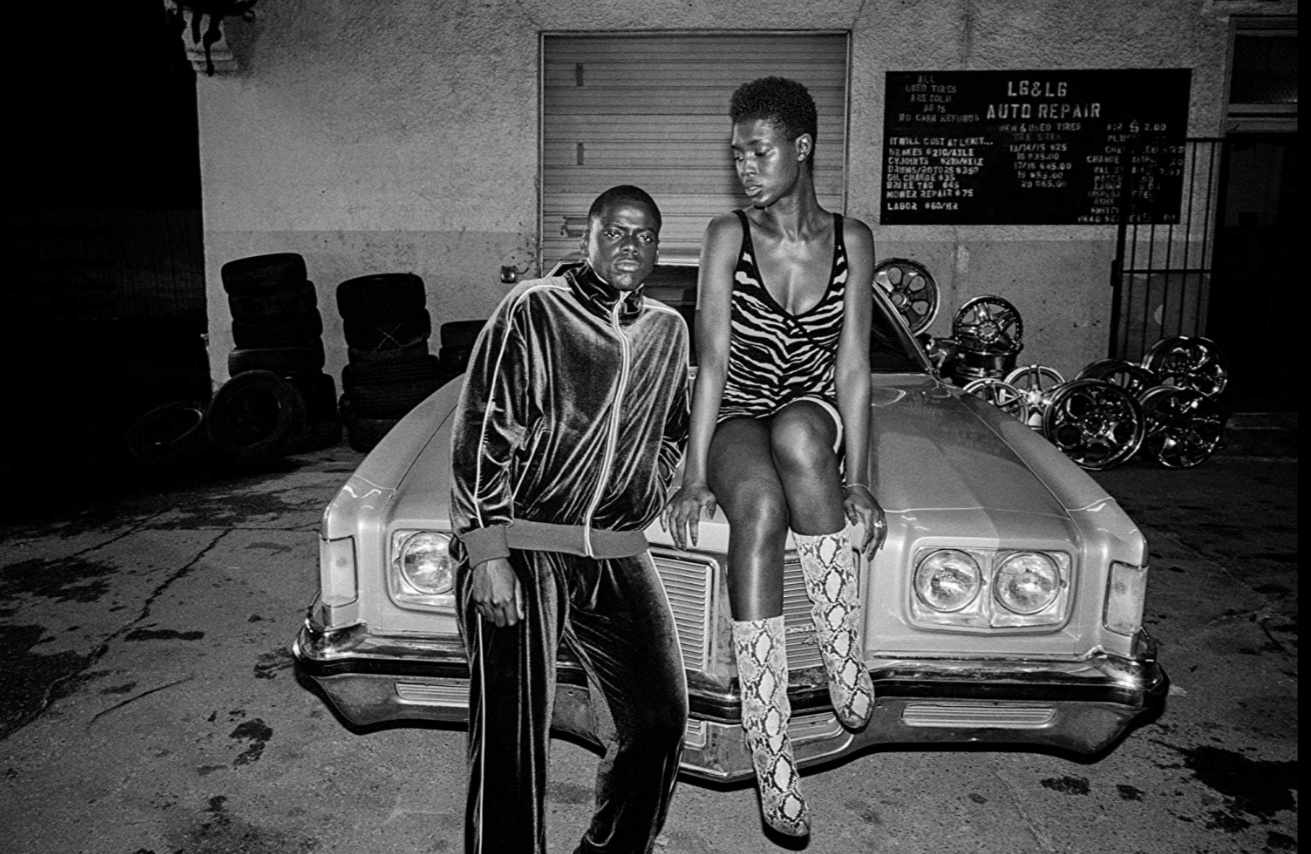It’s Black History Month and, to celebrate, local cinema stalwart Hyde Park Picture House are screening a series of films that explore Black culture. Melina Matsoukas’ directorial debut Queen & Slim is about to be shown on a pop-up screen outside the Roger Stevens Building as I sit shivering on a canvas deckchair; despite donning a turtleneck, fleece and fur coat, I have severely underestimated the number of layers needed. To hold my attention away from the frost setting in my bones, this film is going to have to be gripping. Thankfully, for the next two hours, my focus doesn’t leave the screen.
After stumbling through a pretty mediocre first date, Queen (Jodie Turner-Smith), a strait-laced, lone wolf lawyer, and teetotal, lovable everyman Slim (Daniel Kaluuya) decide to head home. On the way, an arbitrary traffic stop from a viciously racist, trigger-happy cop changes their lives forever as they instantly become criminals who must evade the law in order to save themselves.
Of course, the tale of lovers-as-fugitives is a well-used one, but Matsoukas firmly roots hers in the present day. With breaking news ricocheting through social media, a Tinder date and the threat of constant technological surveillance hindering the couple, proceedings are kept timely and fresh. The score too, composed by Blood Orange (on the recommendation of Solange Knowles), captures the searing emotion of the couple’s journey by blending hip-hop, classical and pop music in an ode to the modern Black experience. As a director who made her name producing videos for the likes of Beyoncé and Rihanna, music’s influence extends to the film’s visuals as much as its sound. Back roads, gas stations and fields of horses all create a romanticised image of a road-trip Americana that retains Metsoukas’ slick music video aesthetic. Snow-covered Ohio becomes sun-drenched Florida as the protagonists find an unexpected sense of freedom and a will to let loose.

Although, despite the duo’s perseverance and intermittent respite, the horror of their situation remains omnipresent. Police brutality in the US has caused racial tensions that have reached their boiling point in the last few years. The story itself was inspired by the fatal shooting of Trayvon Martin by a member of a Neighbourhood Watch and the death of 12-year-old Tamir Rice, who was shot by a white police officer while playing with a toy gun, is undoubtedly referenced in the film’s opening setting of Cleveland. The exhibition of violence that stems from a justice system that equates Blackness with criminality feels even more poignant after this summer’s Black Lives Matter protests in the aftermath of the killing of George Floyd.
Yet, one cannot deny that any on-the-run film would stop dead in its tracks without a dynamic pair to lead it. Newcomer Turner-Smith performs convincingly and with nuance as her character learns to accept her vulnerability, but it is Kaluuya, fresh from his Oscar nomination, who is truly astounding. His sweet-natured awkwardness is played with such heart and carries much of the audience’s hope. As the characters find space to relax in between stop-overs, their interiors begin to unravel. Through voice-overs, their inner monologues have conversations on mortality, legacy and heroism with stolen glances and longing stares betraying plunging depths of emotion. The couple’s transition from ill-matched first daters to all-encompassing love is compelling but gets caught on an occasionally clichéd script. However, Matsoukas never rushes the development of their relationship and allows her story time to linger and breathe. The minimal backstory of either character anchors the narrative in the present moment and makes “Queen” and “Slim”, whose real names are only revealed during the film’s ending, all the more endearing and archetypical.
As for those who we meet along the way, sympathies are never reductively drawn along lines of race. A white police officer is sure their actions have good reason while a Black mechanic thinks their behaviour endangers their entire community. Although, the fact the couple never face any full-frontal racist opposition as their journey takes them into America’s Deep South feels like there is a missing perspective. Nevertheless, as the couple’s legend shapes around them, mythologised outside of their control, their fictional legacy speaks to something bigger, as does the film. Personal anguish and political violence become intertwined, as the spotlight is shone on how much society really values promising, innocent Black lives.
Image Credit: IMDb

